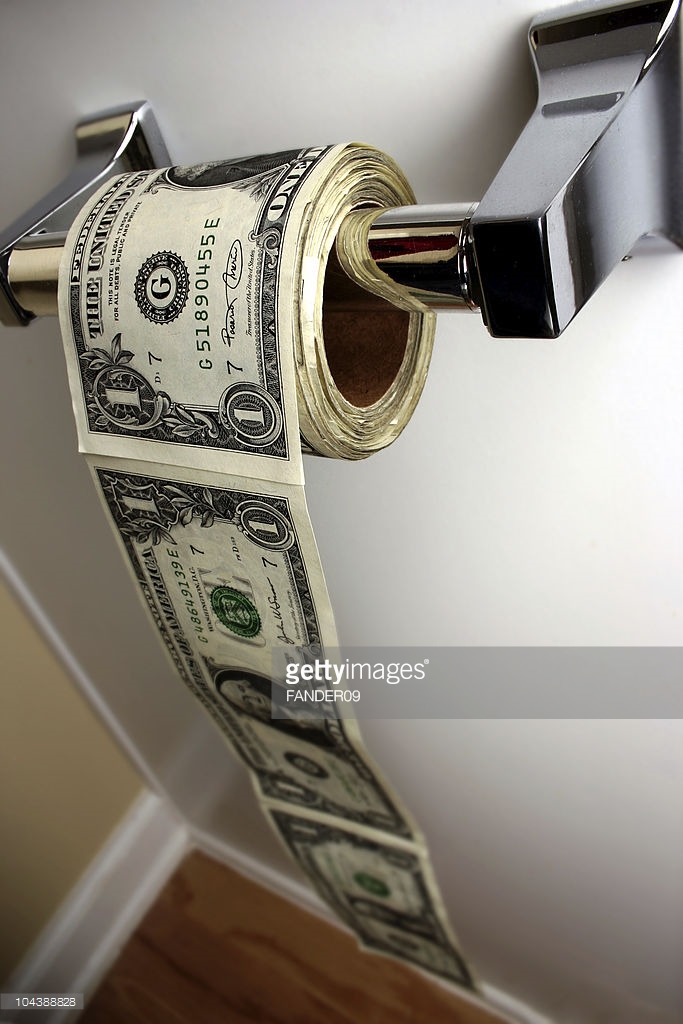China Downgrades US Credit Rating

Source: gettyimages.com
China still holds about $1.2 trillion of US treasurys, I mention this first as it is a very salient fact.
Dagong, China's credit rating agency downgraded US sovereign rating from A- to BBB+. They cite deficiencies in US political ecology and tax cuts that directly reduce the federal government's sources of debt repayment. This puts the US's rating in line with Peru, Colombia and Turkmenistan according to Dagong's rating system. They have also given a negative outlook on the US.
This may not look like a major downgrade but as the rating falls the cost to borrow increases. With some $1.2 trillion, even a 1% increase results in an increase in interest of $12 billion. Now consider the current economic condition of the US. Trump's tax package is expected to increase debt by $1.4 trillion over the next decade and currently the debt stands around $20 trillion. The US income comes from taxes and the present forecast of our future growth is dismal at best. As more people lose their jobs and more companies downsize or close, the tax base erodes.
The US revenue to debt ratio is projected to fall from 14.9% in 2018 to 12.1% in 2022. This is projected not actual but the current economy affirms that this is a valid projection. Back to my initial point, with China holding $1.2 trillion and the US debt worthiness falling, the likely outcome will be that China will have the US commit real assets as collateral from the debt they hold. Things similar to what took place in Greece.



In a way, it's funny to see Dagong rate U.S. sovereign debt as BBB+. The entire modern-portfolio-theory (MPT) infrastructure contains the assumption that U.S. Treasuries reflect the "risk-free rate."
If you're wondering what MPT is, suffice to say that it's an obligatory model for portfolio managers who collectively manage trillion$.
Thank you for telling me what MPT stands for, most just give the acronym. As far as US treasury's being 'risk free', I beg to differ. If you consider that a countries debentures should be rated on the economic condition of the issuing country, the US is far from 'risk free'. The possibility of the US's ability to repay the debt is highly questionable. I am not debasing the MPT, but common sense should enter into the equation.
Good point, but I'm describing standard investment-management training. If it helps, you can peg it as an ideology. Suffice to say, investment managers who buck it are taking a real risk with their own careers. The bulk of them don't.
It has some odd side effects. If a mutual fund, pension fund or whatnot is obliged by their charter to purchase a fixed amount of "risk free" government debt for risk-management reasons, they have to do so.
There was a time during the Eurocrisis when German governments sold for negative yields. I wonder how much influence institutional money had in pushing up the prices to negative-yield levels. If your corporate charter says you have to put 30% of the money in government bills or bonds, you have to buy them with yield no object.
Now I can clearly see what you are driving at. I do know about the handcuffing of charters to their investment traders / brokers. In this case, they consider gov't instruments as 'risk free' probably because they haven't the sense to update their charter. But it's probably not a result of their lack of sense, it is most likely that some one higher up is getting a kickback for investing in T-bills / T-bonds.
Currently, the gov't is the largest buyer of the T instruments and rumors are looming about China's move to stop buying them. As I'm sure you are aware, T-bill auctions are held about every week (I may be mistaken) but at least every month. These are just to pay off T instruments that are or have matured. All they do, is to roll over the debt, if an individual were to do this it would be considered 'kiting'.
I'm very interested to see what will happen as NIRP (negative interest rates)/ ZIRP (zero interest rates) come to bear. I'm still confused as to why anyone would invest in any instrument that gives no or a negative return. Similarly why do people hold money in bank accounts when the return is maybe 1% on a good day. I do keep money in the bank so I can issue checks but I keep just enough to cover the checks and keep the account active.
Finally, as to your point about brokers whom are reluctant to buck the system. I totally understand their position, when it comes to keeping employed.
Nice post. Good info
Thank you